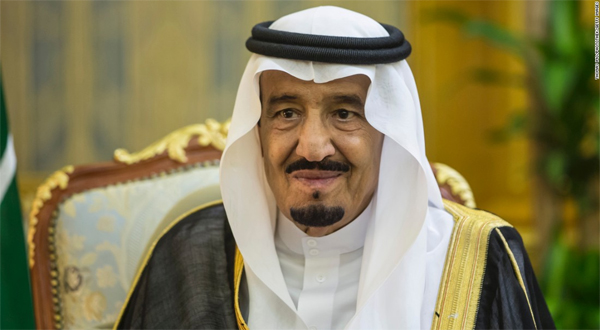Lebanese Prime Minister Saad Hariri unexpectedly announced his resignation on Saturday. So what? But where did he announce his decision to quit and what did he say as he resigned?
The answers to these questions are the key to what is unfolding in Saudi Arabia as Crown Prince Mohammed bin Salman consolidates his grip on power after a palace coup.
Hariri did not quit at a press conference in Beirut but picked Riyadh of all places to announce he is resigning from the cabinet and his uneasy alliance with Lebanon’s Hezbollah. Hariri, a longtime client of Saudi Arabia, warned about assassination plots targeting him and said Iran’s hands in the region “will be cut off.” Hariri, whose family owns a giant Saudi construction company, had presided over a national unity government that included Hezbollah, Iran’s foremost ally in Lebanon.
So it is clear that while strengthening his hold over the kingdom, Crown Prince Salman also started his all-out campaign against Iran with much American encouragement.
Crown Prince Salman has started his quest against Iran in Lebanon and it is clear that Tehran has started hitting back from Yemen as the pro-Iranian Shiite forces have reportedly hurled a ballistic missile against the kingdom, which was shot down by an American missile.
Saudi officials recently made clear they sought to confront Iran and its allies across the Arab world. In May, Crown Prince Salman ruled out any dialogue with Iran, saying that Saudi Arabia “will work so that the battle is on their side, inside Iran.” Saudi State Minister for Gulf Affairs Thamer al-Sabhan seemed to repeat this position last week, when he said the Iranian-backed Hezbollah “should be toppled” from power, promising “astonishing” developments in the days to come.
All these are happening as Iran confronts the U.S. in Iraq and now in Syria. The U.S. is unhappy with how the central government in Baghdad is cooperating with Iran as the pro-Iranian militia Hashd al-Shaabi is not only confronting Daesh terrorists but also the Iraqi Kurds who staged an illegal referendum for independence that turned into a great fiasco. In the process, much to the satisfaction of Ankara, Hashd al-Shaabi has also pushed the PKK out of most of Sinjar, all of Kirkuk and other areas.
The Iranians have also announced they will help the Assad regime regain control of Raqqa and the areas east of the Euphrates across the Turkish border. This means the areas now occupied by the Syrian forces affiliated with the PKK with American help will be pushed out of the area, again much to the satisfaction of Ankara.
So the Iranian influence in Iraq and Iran has started to serve Turkish interests especially in Syria and Iraq as the U.S. has been extremely insensitive to Turkish concerns that the Pentagon is aiding the PKK in northern Syria.
On the other hand, Saudi Arabia is a friend of Turkey and thus Turkey is caught in the middle of a row between Tehran and Riyadh. Ankara will be walking on thin ice as the Saudis try to undercut Iranian influence in the region while Iran hits back in Saudi Arabia, probably trying to cause internal conflict in the kingdom.
Courtesy: This article was first published in Daily Sabah.





